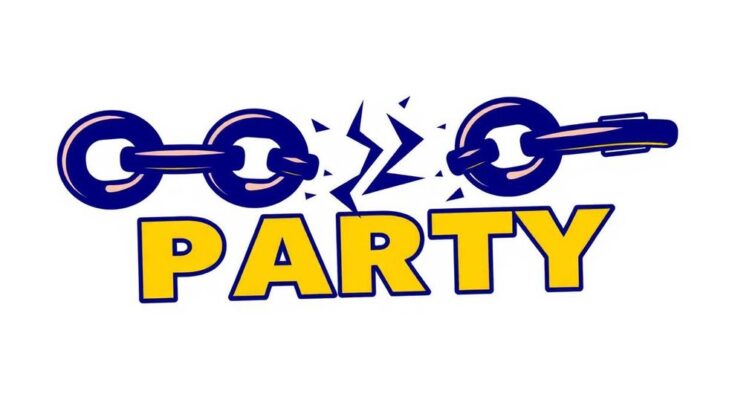The Democratic Party of Kenya (DPK) has announced its exit from the Kenya Kwanza coalition, citing untenable political circumstances. The decision made by Justin Muturi, DPK’s leader, follows his vocal criticisms of the government, particularly regarding enforced disappearances linked to his son’s abduction. Despite facing opposition from Ruto’s allies, Muturi remains defiant about his stance.
The Democratic Party of Kenya (DPK), led by Public Service Cabinet Secretary Justin Muturi, has formally issued a 30-day notice to exit the Kenya Kwanza coalition. The announcement, made by DPK Chairman Esau Kioni and Secretary General Jacob Haji, cited political developments that have rendered their participation in the coalition untenable. A letter dated March 7, 2025, was directed to the Kenya Kwanza Coalition Secretariat, invoking Clause 8 of the coalition agreement for their withdrawal.
In addition to the notice, the DPK’s letter was shared with the Registrar of Political Parties and key figures from other coalition partners, including Ford Kenya, the United Democratic Alliance (UDA), and the Maendeleo Chap Chap Party. The letter asserted, “Kindly take notice that our stay in Kenya Kwanza Coalition is no longer tenable due to the prevailing political developments.” This move signifies a significant political shift within the coalition.
The withdrawal occurs amid Muturi’s escalated criticism of the government, particularly in light of his son’s abduction, which he has stated has profoundly affected his family. Muturi’s public remarks regarding enforced disappearances highlight his concerns around national security and personal trauma, having experienced such an event firsthand when his son was taken by unidentified individuals.
Muturi expressed his experience: “I have personally suffered as my son was abducted, leaving my family in turmoil.” He has voiced frustration over a lack of communication regarding the incident, which has attracted significant media attention and government scrutiny.
Despite support from some factions, Muturi faces backlash from President William Ruto’s allies, who accuse him of politicizing personal grievances. Senator Wahome Wamatinga remarked on Muturi’s motivations, implying they are linked to his ambitions for the 2027 elections, while MP Reuben Kiborek condemned his public criticisms as inappropriate. Amidst this controversy, other critic voices such as Saboti MP Caleb Amisi suggested that if Muturi disapproves of the government’s actions, he should resign rather than be a part of it.
Nevertheless, Muturi remains resolute, stating, “I do not fear being sacked. I trust in God,” and has indicated that he is prepared to accept any fallout from his actions, including resignation. His stance reflects a courageous stand against perceived injustices, amidst a politically charged environment.
In summary, the Democratic Party of Kenya, under Justin Muturi’s leadership, has taken the decisive step to exit the Kenya Kwanza coalition, citing untenable political circumstances. Muturi’s recent criticisms of the government, intertwined with personal experiences of trauma, have led to contention among political circles. Despite facing backlash, he remains steadfast in his convictions, indicating a complex interplay of personal and political motives as the 2027 elections approach.
Original Source: eastleighvoice.co.ke




